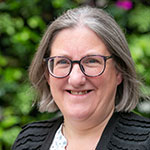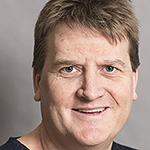National clinical directors and specialty advisers
The national clinical directors and national specialty advisers are practising clinicians from across England who work part-time at NHS England, providing clinical leadership, advice, input and support across distinct areas of NHS conditions and services ranging from cancer and cardiovascular disease to urgent and emergency care and major trauma in line with the NHS Long Term Plan.
NHS England’s Specialised Commissioning Programme also employs clinical directors who provide clinical leadership across national programmes of care and clinical reference groups (CRGs). You can find out more about the CRGs and associated clinical directors on our National Programmes of Care and Clinical Reference Groups page.
NHS England is in the process of recruiting to the new cohort of national specialty advisers (NSAs). This page will be updated as appointments are confirmed.
Current and incoming national clinical directors and specialty advisers
- Adult mental health
- Antimicrobial resistance and infection prevention and control
- Autism
- Breast screening
- Cancer
- Cardiovascular disease prevention
- Children and young people
- Children and young people mental health
- Critical and peri-operative care
- Dementia and older people’s mental health
- Diabetes and obesity
- Eating disorders
- Elective Care
- Endoscopy
- Eye care
- Flu and routine vaccinations
- Health and justice
- Heart disease
- Improvement
- Learning disabilities and autism
- Long term conditions
- Major trauma
- Maternity
- Mental health and neurodiversity
- Mental health pharmacy
- Musculoskeletal
- Neonatology
- Obstetrics and obstetrics and prevention
- Older people and integrated personalised care
- Outpatient recovery and transformation
- Palliative and end-of-life care
- Pathology
- Physiological measurements
- Prescribing
- Public health screening
- Respiratory disease
- Secure mental health
- Stroke
- Tobacco addiction
- Urgent and emergency care
- Women’s health
National clinical director for adult mental health
 Dr Mary Docherty is a Consultant Liaison Psychiatrist at the South London and Maudsley NHS Foundation Trust working at King’s College Hospital.
Dr Mary Docherty is a Consultant Liaison Psychiatrist at the South London and Maudsley NHS Foundation Trust working at King’s College Hospital.
Her background includes training in social sciences and organisational consultancy. She has held policy roles with the Department of Health, NHS England, the National Institute of Health and Care Excellence (NICE), and London’s Healthy London Partnership working on national and regional programs tackling inefficiencies and inequalities at service interfaces for individuals living with mental ill health. She has policy, research and clinical expertise in service integration including research in integrated mental, physical and social care as a former Harkness Fellow in Health Care Policy at Columbia University, New York.
National clinical director for infection and antimicrobial resistance
Professor Matt Inada-Kim is a Consultant in Acute Medicine and visiting professor at Hampshire Hospitals and University of Southampton.
His role in NHS England is as National Clinical Director for Infection and Antimicrobial Resistance (AMR), and he was previously National Specialty Adviser for Sepsis, National Clinical Lead for Acute Respiratory Infection (ARI) Hubs, Covid Pathways/oximetry@home/Virtual Wards and the Deterioration and Sepsis Commissioning for Quality and Innovations (CQUINs).
He is aiming to bring a combined clinical infection management approach to AMR/AMS, sepsis and infection prevention and control with the aim of improving outcomes across all settings through optimising pathways, POC diagnostics and the use of large-scale data.
He has led the development of a standardised national methodology for assessing the burden of infections and sepsis, their outcomes and improvement.
He co-developed and co-led the implementation of NEWS2 across all hospitals, care homes and ambulance trusts nationally, and the deterioration CQUIN that has been implemented across 114 acute trusts and represents a global first in incentivising the optimal management of acutely ill patients most at risks of death.
He led the research in Covid patients that first proved that oxygen saturations at home predicted outcomes, purchase of 1.2 million oximeters and clinically led the Covid oximetry at home project in all settings that led to coverage of the whole country within 38 days. He shared this home monitoring/safe admission avoidance strategy globally with the World Health Organization (WHO) and across 18 countries during the pandemic leading to some countries purchasing oximeters for every household; reducing mortality rates due to COVID.
He then developed community based, ARI assessment hubs in response to very large numbers of ARI cases, having published papers demonstrating their effectiveness as integrated care models supporting urgent care and primary care recovery – 363 were set up last winter, seeing over 740,000 patients in 4 months.
Health Service Journal award winner in Infection/Sepsis 2019, Deterioration 2020 and Patient Safety 2021.
National specialty adviser for infection prevention and control and antimicrobial resistance diagnostics
 Professor Mark Wilcox has formerly been the Director of Infection Prevention (4 years), Infection Control Doctor (8 years), Clinical Director of Pathology (6 years) and Head of Microbiology (15 years) at LTHT.
Professor Mark Wilcox has formerly been the Director of Infection Prevention (4 years), Infection Control Doctor (8 years), Clinical Director of Pathology (6 years) and Head of Microbiology (15 years) at LTHT.
Since the pandemic, Professor Wilcox has been a member of UK Scientific Advisory Group on Emergencies (SAGE, COVID-19; and chairs one of its subgroups on Nosocomial Infection). He is co-chair of DHSC’s UK Technical Validation Group for COVID-19 tests, and is the clinical lead for winter virus multiplexing. He is a member of the Scientific Advisory Board for the EU Innovative Medicines Initiative’s COMBACTE-NET consortium. From 2017, he was seconded one day per week to NHS Improvement to support the delivery of the new national target to reduce healthcare associated Gram-negative blood stream infections in England. He was the Deputy Chair of the UK Department of Health’s Antimicrobial Resistance and Healthcare Associated Infection (ARHAI) Committee up until 2018; he became an invited expert/observer to this committee from 2021.
He is an expert adviser to the Department of Health in England on healthcare associated infections (HCAIs), UK NICE (C. difficile management and antimicrobial evaluations project), the UK EPIC/NICE projects, the Health Technology Assessment (HTA) programme on Healthcare Associated Infection, the Wellcome Trust and CARB-X panel on novel antimicrobials, the Centre for Health Economics (University of York) for the (UK NICE) evaluation of the value of antibiotics to the NHS, and the European Centre for Disease Control. He is a member of UK, European and US working groups on C. difficile infection, and is on the Editorial Boards of Clinical Infectious Diseases, Journal of Hospital Infection and Infectious Diseases in Clinical Practice. He has provided clinical advice as part of the FDA/EMA submissions for the approval of several novel antimicrobial agents, 1998-2022.
Professor Wilcox heads a Healthcare Associated Infection research team at the University of Leeds, comprising ~30 doctors, scientists and nurses; projects include multiple aspects of Clostridium difficile infection, diagnostics, antibiotic resistance and the gut microbiome, staphylococcal infection, and the clinical development of new antimicrobial agents. He has a track record of translational research, including providing the basis of clinical advice to the NHS. He has been the Principal/UK Investigator for 15 clinical trials of new anti-infective drugs, 1999-2021, has carried out multiple NIHR portfolio studies on healthcare associated infection topics. He has authored >560 papers and published a number of books and chapters. He is co-editor of Antimicrobial Chemotherapy (5th/6th/7th Eds, 2007/12/15).
National specialty advisers for autism
 Dr Amy Dissanayake is a GP at Adur Health Partnership in Shoreham-by-Sea, having obtained her medical degree and BSc in Leeds and started her GP training in Norfolk.
Dr Amy Dissanayake is a GP at Adur Health Partnership in Shoreham-by-Sea, having obtained her medical degree and BSc in Leeds and started her GP training in Norfolk.
As well as previously working in quality and clinical effectiveness clinical lead roles, Amy is Medical Director for NHS Sussex Integrated Care Board. This has involved supporting the transforming care agenda, introduction of the Learning Disability Mortality Review (LeDeR), and jointly developing a quality kite mark for primary care for people with a learning disability. She is now Medical Director for West Sussex Clinical Commissioning Group (soon to be NHS Sussex) and looks forward to bringing these system leadership skills to the role of National Specialty Adviser for Autism.
In addition, Amy is the E-media Editor for the Royal College of General Practitioners journal, InnovAiT, writing a regular blog and social media for trainee GPs and their trainers.
 Dr Janine Robinson is a Consultant Clinical Psychologist and a specialist in the field of autism in adults. She completed her D.Clin.Psy. at the Institute of Psychiatry, King’s College, London in 2000. She holds a part-time consultant role in an adult autism diagnostic assessment clinic and is National Specialty Adviser for autism with NHS England supporting the NHS Long-term Plan and the priorities identified for autism. Janine has a long history in health education (Scotland) where, with colleagues and through wider consultation she played a key role in developing a competency framework for autism, commissioning autism education and training across the workforce with an emphasis on building autism capacity across mainstream services.
Dr Janine Robinson is a Consultant Clinical Psychologist and a specialist in the field of autism in adults. She completed her D.Clin.Psy. at the Institute of Psychiatry, King’s College, London in 2000. She holds a part-time consultant role in an adult autism diagnostic assessment clinic and is National Specialty Adviser for autism with NHS England supporting the NHS Long-term Plan and the priorities identified for autism. Janine has a long history in health education (Scotland) where, with colleagues and through wider consultation she played a key role in developing a competency framework for autism, commissioning autism education and training across the workforce with an emphasis on building autism capacity across mainstream services.
Janine contributes to clinical research, training and supervision in autism with the goal of improving identification, diagnosis and autistic individuals’ experiences of the NHS and wider public services. She is currently the local (Cambridgeshire) PI of a national NIHR-funded research project (UCL) seeking to improve diagnostic assessments of adults and is working closely with Professor Julia Sinclair (National Specialty Adviser for alcohol dependence) on identifying priorities for research and policy in Substance use, Alcohol and Behavioural addictions in Autism (SABAA) as part of a Priority Setting Partnership.
 Dr Christopher Matthew Ince is a Consultant Psychiatrist currently working for Cumbria, Northumberland, Tyne and Wear NHS Foundation Trust; he was appointed in January 2008 and has worked across inpatient forensic learning disability services (low and medium secure) and, from November 2015 has worked within the national referral adult autism service based at Mitford Unit, Northgate Hospital; Dr Ince currently works within Community Learning Disability Services in Newcastle.
Dr Christopher Matthew Ince is a Consultant Psychiatrist currently working for Cumbria, Northumberland, Tyne and Wear NHS Foundation Trust; he was appointed in January 2008 and has worked across inpatient forensic learning disability services (low and medium secure) and, from November 2015 has worked within the national referral adult autism service based at Mitford Unit, Northgate Hospital; Dr Ince currently works within Community Learning Disability Services in Newcastle.
In terms of operational management, Dr Ince has previously held the role of Lead Consultant for Adult Forensic Services (with oversight for over 150 Forensic Mental Health, Learning Disability and Specialist Personality Disorder beds), Clinical Director for Adult Specialist Services (including Regional Eating Disorder, Regional Affective Disorder, Cognitive Behavioural and Psychoanalytical Psychotherapy, and Gender Dysphoria Services) and, most recently, the role of Associate Medical Director, with joint responsibility for In-Patient Services (Working Age Adult, Older Persons and Autism) across two hospital sites.
Dr Ince has further held roles as a Clinical Advisor to the Care Quality Commission, External Professional Assessor for the Parliamentary Health Service Ombudsman, and sat on the Expert Advisory Group for the CQC/HoHSC review of Long Term Segregation that led to the publication of ‘Out of Sight: Who Cares’; he has been a Care, Education and Treatment Review (CETR) Chair and was additionally on the panel of chairs for the Independent CETR processes as overseen by Baroness Hollins.
In October 2021, Dr Ince was seconded to NHS England, and holds the role of National Speciality Advisor (Autism) within the Learning Disability and Autism Programme; this role includes the development of policy related to improving the access and quality of all healthcare settings and autism services, supportive clinical leadership, advice and insight, and further involvement with complex and high profile cases on a national basis.
National specialty adviser for breast screening
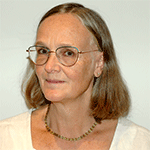 Dr Louise Wilkinson is a Consultant Breast Radiologist at the Oxford Breast Imaging Centre. She was a Director of Screening for many years in London. She chaired the PHE chaired the Advisory Committee on Breast Cancer Screening and is Professional Clinical Adviser to Screening Quality Assurance Service in London. She is a member of the Breast Screening Radiology Clinical Professional Group and subject matter expert for Digital Transformation of Screening.
Dr Louise Wilkinson is a Consultant Breast Radiologist at the Oxford Breast Imaging Centre. She was a Director of Screening for many years in London. She chaired the PHE chaired the Advisory Committee on Breast Cancer Screening and is Professional Clinical Adviser to Screening Quality Assurance Service in London. She is a member of the Breast Screening Radiology Clinical Professional Group and subject matter expert for Digital Transformation of Screening.
National clinical director for cancer

Peter Johnson is Professor of Medical Oncology at the University of Southampton, National Clinical Director for Cancer at NHS England and Chair of the UK Office for Life Sciences cancer goal. His work at NHS England covers the range of policy aimed at improving cancer survival, particularly the earlier and faster diagnosis of cancer, as well as its treatment.
He was previously Chief Clinician for Cancer Research UK from 2008 to 2017. His research interests are in applied immunology and immunotherapy; lymphoma biology and precision medicine, early cancer detection biomarkers and clinical trials.
National clinical director for cardiovascular disease prevention
Helen Williams is Consultant Pharmacist for Cardiovascular Disease and Clinical Care Professional Lead for Long-Term Conditions for the South East London Integrated Care System.
Helen has worked as a CVD specialist for more than 25 years across secondary, community and primary care settings. She was clinical adviser to the AHSN national atrial fibrillation (AF) programme and developed the pharmacist-led virtual clinic model to optimise uptake of anticoagulation in AF, which has now been spread nationally.
Most recently, as the National Specialty Adviser for CVD Prevention at NHS England, she worked on the delivery of the national CVD ambitions for AF, blood pressure and cholesterol in the NHS Long Term Plan.
Helen also works at UCL Partners on the implementation of Proactive Care Frameworks and CVDACTION to support primary care with the tools and resources to optimise patient outcomes, particularly for AF, blood pressure, lipids, heart failure, diabetes and chronic kidney disease.
National specialty advisor for cardiovascular disease prevention
 Dr Rani Khatib FRPharmS, FESC is a senior consultant pharmacist in cardiology and cardiovascular research at Leeds Teaching Hospitals NHS Trust and an Associate Professor at the Leeds Institute of Cardiometabolic Medicine (LICAMM), University of Leeds.
Dr Rani Khatib FRPharmS, FESC is a senior consultant pharmacist in cardiology and cardiovascular research at Leeds Teaching Hospitals NHS Trust and an Associate Professor at the Leeds Institute of Cardiometabolic Medicine (LICAMM), University of Leeds.
He is also a National Clinical Champion for Lipids Management and member of the Heart Failure Expert group at NHS England. Lead author of the national lipid management & statin intolerance pathways.
Dr Khatib served as a specialist committee member on the NICE Heart Failure Guidelines & Quality Standards and is a Fellow of the European Society of Cardiology (ESC), and the Royal Pharmaceutical Society.
He leads on the delivery of several innovative CardioRenalMetabolic risks & medicines optimisation clinics and services across West Yorkshire. DR Rani Khatib is also head of the cardiology innovative medicines optimisation service and the senior CVD consultant at Health Innovation Yorkshire & Humber. Another position of his is co- chair of the UK Clinical Pharmacy Association Cardiovascular Group and core member of the international Cardiology Allied Professionals Task Force at ESC.
DR Khatib is a well published, senior academic, grants holder, with multiple recognitions and awards for innovation and excellence in patient care.
National clinical director for children and young people
 Professor Simon Kenny has been National Clinical Director for Children and Young People since 2019. He trained in Birmingham, Liverpool and Melbourne and has been a consultant paediatric surgeon and urologist at Alder Hey Children’s Hospital in Liverpool since 2003. He is an Honorary Professor in Child Health, and his research interests include population level data and regenerative medicine. As Clinical Director at Alder Hey he played a significant role in redesigning services and moving into the new award-winning Alder Hey in the Park in 2015. He is also the National Clinical Lead for Paediatric Surgery and Urology in the Getting It Right First Time programme and Chair of the Women’s and Children’s Programme of Care in Specialised Commissioning.
Professor Simon Kenny has been National Clinical Director for Children and Young People since 2019. He trained in Birmingham, Liverpool and Melbourne and has been a consultant paediatric surgeon and urologist at Alder Hey Children’s Hospital in Liverpool since 2003. He is an Honorary Professor in Child Health, and his research interests include population level data and regenerative medicine. As Clinical Director at Alder Hey he played a significant role in redesigning services and moving into the new award-winning Alder Hey in the Park in 2015. He is also the National Clinical Lead for Paediatric Surgery and Urology in the Getting It Right First Time programme and Chair of the Women’s and Children’s Programme of Care in Specialised Commissioning.
Outside work Simon enjoys cycling, skiing, and sailing. Qualifications: BSc(Hons) ChB(Hons) MD FRCS(Paed) FAAP
National specialty adviser for children and young people

Dr Matthew Clark is a paediatric consultant and specialty lead at East Sussex Healthcare NHS Trust. He was previously on the governing body of NHS Camden Clinical Commissioning Group and clinical lead of admission avoidance in the North Central London Sustainability and Transformation Partnership/Integrated Care System. Matthew studied medicine at Cambridge University, completed his paediatric specialists training in London and co-founded The Welbodi Partnership, supporting healthcare in Sierra Leone. Matthew has extensive experience in service redesign and transformation working across community, primary and secondary care.
National clinical director for children and young people’s mental health
Professor Prathiba Chitsabesan is a Consultant in Child and Adolescent Psychiatry working in a large mental health and learning disability trust (Pennine Care NHS Foundation Trust). Previously Associate National Clinical Director for Children and Young People’s Mental Health and Co-Chair of the Tier 4 CYPMH Clinical Reference Group (NHS England and NHS Improvement), she has recently been appointed to the role of National Clinical Director. She has an interest in the mental health and neurodevelopmental needs of children and young people in contact with the criminal justice system and developing mental health support following major incidents and emergencies. She continues to be research active as a Visiting Professor (University College London and Manchester Metropolitan University) and has been involved in a number of regional and national transformation programmes.
National clinical director for critical and peri-operative care

Professor Ramani Moonesinghe is Professor of Perioperative Medicine at University College London (UCL) and a Consultant in Anaesthesia, Perioperative and Critical Care at UCL Hospitals. She has been National Clinical Director for Critical and Perioperative Care since April 2020, having worked with NHS England since 2016.
Ramani is Director of the National Institute for Health and Care Research (NIHR) Central London Patient Safety Research Collaboration, Theme Lead for Critical and Perioperative Care at the UCLH NIHR Biomedical Research Centre, and Deputy Chair of the National Institute of Academic Anaesthesia. She has previously been Director of the Royal College of Anaesthetists’ Health Services Research Centre (2016-22), a council member of the Royal College of Anaesthetists (2008-12) and a Senior Post-doctoral Research Fellow in Improvement Science supported by the Health Foundation (2015-18).
She was awarded an OBE in 2021 for service to anaesthesia, perioperative and critical care.
National clinical director for dementia and older people’s mental health
Dr Jeremy Isaacs is a Consultant Neurologist at St George’s Hospital, where he was Dementia Clinical Lead from 2010-2019, and Kingston Hospital where he has been Neurology Clinical Lead since 2014.
He has been Clinical Director of the NHS England – London Dementia Clinical Network since 2019, where he has led an extensive quality improvement programme. This includes establishing the London Memory Service Network, Memory Service pathway redesign, championing joint working and multidisciplinary meetings between specialties and designing and leading the first London and national Memory Service audits.
He was a member of the National Institute for Health and Care Excellence (NICE) 2018 dementia guideline committee and chaired the NICE 2022 self-harm guideline committee.
At St George’s Hospital he is a member of the multidisciplinary Cognitive Neurology Service and developed a support group for young people living with dementia funded by the St George’s Hospital Charity.
He is Honorary Reader in Neurology at St George’s, University of London where he is Neurosciences Clinical Academic Group Director and co-directs the MSc in clinical neuroscience practice. He is Specialty Research Lead for Neurological Disorders and Dementias and Neurodegeneration (DeNDRoN) for South London Clinical Research Network. His research interests are in functional cognitive disorder, dementia and related conditions.
National clinical director for diabetes and obesity
 Dr Clare Hambling is a General Practitioner in a small market town in Norfolk and Waveney. She has practiced in Norfolk for nearly 25 years and has a long established interest in Diabetes and cardiometabolic medicine and in Population Health Management. She has wide experience of clinical leadership having served in a range of positions for West Norfolk and Norfolk and Waveney CCGs and the ICS since 2016, with roles including Clinical Lead for Long Term Conditions, Specialty Adviser for Diabetes and Obesity and Co-Clinical Lead for Norfolk and Waveney’s award winning Population Health Management programme, Protect-NoW, including projects improving equitable access to the NHS Diabetes Prevention Programme and the Digital Weight Management Programme. She is Clinical Lead for the National Diabetes Audit Core Primary Care and a member of the Advisory Board for the National Pregnancy in Diabetes Audit. She has been Chair of the Primary Care Diabetes Society since 2018.
Dr Clare Hambling is a General Practitioner in a small market town in Norfolk and Waveney. She has practiced in Norfolk for nearly 25 years and has a long established interest in Diabetes and cardiometabolic medicine and in Population Health Management. She has wide experience of clinical leadership having served in a range of positions for West Norfolk and Norfolk and Waveney CCGs and the ICS since 2016, with roles including Clinical Lead for Long Term Conditions, Specialty Adviser for Diabetes and Obesity and Co-Clinical Lead for Norfolk and Waveney’s award winning Population Health Management programme, Protect-NoW, including projects improving equitable access to the NHS Diabetes Prevention Programme and the Digital Weight Management Programme. She is Clinical Lead for the National Diabetes Audit Core Primary Care and a member of the Advisory Board for the National Pregnancy in Diabetes Audit. She has been Chair of the Primary Care Diabetes Society since 2018.
National specialty advisor for obesity
 Dr Kath McCullough is a consultant in Diabetes and Endocrinology with a specialist interest in Bariatric Medicine at Ashford and St Peter’s Hospital and the Royal Surrey County Hospital in Guildford. She has a long standing interest in weight management and undertook her PhD on novel treatments for obesity at Imperial College, London.
Dr Kath McCullough is a consultant in Diabetes and Endocrinology with a specialist interest in Bariatric Medicine at Ashford and St Peter’s Hospital and the Royal Surrey County Hospital in Guildford. She has a long standing interest in weight management and undertook her PhD on novel treatments for obesity at Imperial College, London.
As the special advisor for obesity to the Royal College of Physicians, Kath chairs the RCP Advisory group on Nutrition, Weight and Health, and is a member of the Advisory group on Health Inequalities. She also co-chairs the Office for Health Improvement and Disparities South East Regional Weight Management Services Delivery Committee. Kath is a strong advocate for people living with obesity and believes that we all have a part to play in helping people lead healthier lives. She has particular experience in service re-design in weight management services to improve access and ensuring focus on delivery to those with the greatest clinical need.
National specialty advisor for diabetes
 Dr Marc Atkin BM FRCP MD has been a Consultant in Diabetes, Endocrinology and Internal Medicine in Bath, since 2012 and the Clinical Lead from 2017- 24. He led the establishment of the Bath Integrated Diabetes Service in 2013 which is the longest running in the South West of England.
Dr Marc Atkin BM FRCP MD has been a Consultant in Diabetes, Endocrinology and Internal Medicine in Bath, since 2012 and the Clinical Lead from 2017- 24. He led the establishment of the Bath Integrated Diabetes Service in 2013 which is the longest running in the South West of England.
Marc has been diabetes lead for NHS England’s South West Cardiovascular Clinical Network since 2016. He has overseen the successful implementation of diabetes technology across the region, supported primary care diabetes services including GP diabetes champions and implementation of diabetic foot peer reviews across the South West and beyond.
Marc has also served on various committees across different elements of the NHS system; Association of British Clinical Diabetologists (ABCD), NHS England’s Diabetes Expert Reference Group, Diabetes UK’s Diabetes Technology Reference Group, Diabetes UK’s Inpatient Care Programme. He has also been one of the leads on the Quality in Care Diabetes Judging Panel since 2016.
Marc is also diabetic foot lead for the Royal United Hospital Bath and has taken part in the South West Peer Review team which has successfully reduced amputation rates across the region.
He has been part of Diabetes UK’s National Clinical System Leaders Programme and serves on Diabetes UK’s Health Professional Advisory Council which he’s done since 2023.
Marc’s interests include service development and system leadership, data driven population health and integration of technology into clinical pathways. He is working on developing clinical pathways which maximise the opportunities offered by diabetes technology.
For the last two years Marc has also been the Associate Medical Director for Integration for Bath, Swindon and Wiltshire ICS/Acute Hospitals Alliance, which is where he indulges his interests in population health, clinical strategy and operational research.
National specialty advisor for diabetes (children and young adults)
 Dr Fulya Mehta is a Paediatrician working in a large diabetes unit at Alder Hey Children’s Hospital in Liverpool which cares for over 500 children and young people with diabetes.
Dr Fulya Mehta is a Paediatrician working in a large diabetes unit at Alder Hey Children’s Hospital in Liverpool which cares for over 500 children and young people with diabetes.
Fulya has been in a Clinical Lead for CYA diabetes at NHS England since 2022 and has provided leadership across key priorities such as tackling health inequalities with a focus on improving access to treatment technology, transition to young adult care and improving care and outcomes for young people living with type 2 diabetes.
She has led on developing the new Children and Young Adult Diabetes ‘Getting it Right First Time’ programme and the CYA Diabetes RightCare toolkit, which support systems to improve diabetes care locally and reduce unwarranted variation.
National specialty adviser for eating disorders – all ages
Professor Dasha Nicholls is Professor of Child and Adolescent Psychiatry at Imperial College London and Honorary Consultant Child and Adolescent Psychiatrist at Central and North West London NHS Foundation Trust. Her priority is to improve outcomes for patients with eating disorders and co-morbid physical and mental health conditions through research, teaching, policy, and clinical practice. Her clinical roles include chairing development of guidance on the management of medical emergencies in eating disorders and delivery of the national whole team training for children and young people’s community specialised eating disorders services. Her research focuses on young people with eating disorders and those living at higher weight, and on population mental health. She is past President of the Academy for Eating Disorders and past Chair of the Eating Disorders Faculty of the Royal College of Psychiatrists, where she is also Clinical and Strategic Director for National Audits and Research.
Joint national clinical directors for elective care
 Ian Eardley is a Consultant Urological Surgeon in Leeds where he has worked since 1993, specialising in andrology, reconstruction of the urinary tract and genital surgery. He was Vice President of the Royal College of Surgeons of England until July 2018 and he has held a number of national posts relating to surgical training including the role of Chair of the Joint Committee for Surgical Training. He is the current Chair of Council of the Medical Protection Society. In 2014 the British Association of Urological Surgeons awarded him the St Peter’s medal for his contributions to Urology.
Ian Eardley is a Consultant Urological Surgeon in Leeds where he has worked since 1993, specialising in andrology, reconstruction of the urinary tract and genital surgery. He was Vice President of the Royal College of Surgeons of England until July 2018 and he has held a number of national posts relating to surgical training including the role of Chair of the Joint Committee for Surgical Training. He is the current Chair of Council of the Medical Protection Society. In 2014 the British Association of Urological Surgeons awarded him the St Peter’s medal for his contributions to Urology.
Stella Vig has more than 30 years’ experience in the NHS and was appointed as a consultant in vascular and general surgery at Croydon University Hospital in 2006. Her specialist interests are vascular and general surgery.
She is also the National Medical Director for Secondary Care and Quality since 2023. She continues as Clinical Director of Transformation at Croydon Health Services NHS Trust, which opened a ‘hospital within a hospital’ to safely continue planned care and surgery during the pandemic.
With a focus on patient care, developing trainees and supporting colleagues, she has taken leading roles in clinical education, as well as service transformation. These included chairing the JSCT core surgery advisery committee to the four Royal Colleges, London Clinical Director for General Surgery and the London Diabetic Foot Network.
She was elected as a member of the Royal College of Surgeons of England Council in 2016.
National specialty adviser for endoscopy and screening
 Dr Robert Logan is a Consultant Gastroenterologist at Kings College Hospital with a research and specialist interest in non-invasive diagnostics for more than 30 years. He has been a longstanding member of the British Society of Gastroenterology, including being elected to Council and serving as a Trustee. In 2010 he co-authored the BSG Commissioning Guidance for GI and Liver disease, which included ‘Interface services’ as a forerunner of integrated care. Until recently he was the RCP Regional Adviser for South London where he also held positions as Deputy Chair of GI commissioning for Lambeth and Southwark CCGs. In 2018 he became the NSA for Endoscopy at NHS England and has subsequently been involved in the introduction of FIT testing for both the National Bowel Cancer Screening Programme and the symptomatic service.
Dr Robert Logan is a Consultant Gastroenterologist at Kings College Hospital with a research and specialist interest in non-invasive diagnostics for more than 30 years. He has been a longstanding member of the British Society of Gastroenterology, including being elected to Council and serving as a Trustee. In 2010 he co-authored the BSG Commissioning Guidance for GI and Liver disease, which included ‘Interface services’ as a forerunner of integrated care. Until recently he was the RCP Regional Adviser for South London where he also held positions as Deputy Chair of GI commissioning for Lambeth and Southwark CCGs. In 2018 he became the NSA for Endoscopy at NHS England and has subsequently been involved in the introduction of FIT testing for both the National Bowel Cancer Screening Programme and the symptomatic service.
National clinical director for eye care
 Louisa Wickham was appointed a Consultant at Moorfields in 2009. She is a Vitreoretinal Surgeon with a particular interest in the management of diabetic retinopathy, retinal detachment and lens dislocation surgery. She has a research degree in the surgical management of retinal detachment and post-operative scarring.
Louisa Wickham was appointed a Consultant at Moorfields in 2009. She is a Vitreoretinal Surgeon with a particular interest in the management of diabetic retinopathy, retinal detachment and lens dislocation surgery. She has a research degree in the surgical management of retinal detachment and post-operative scarring.
Louisa developed an interest in clinical leadership and management as a trainee, leading her to complete an MSc in health services management at London University. She went on to develop her skills further as a Leadership Fellow for the Health Foundation and as a European Leadership Fellow at INSEAD. She has held a number of leadership roles in the NHS and works with the Royal College of Ophthalmologists and Royal Society of Medicine to promote clinical leadership for doctors at all stages of their training.
Louisa is an advocate of surgical transformation and innovation. She was appointed Chief Surgeon at Moorfields Eye Hospital in 2019 and during this time oversaw the trust’s response to the COVID-19 pandemic and initial recovery including COVID-19 surgical pathways and the Moorfields cataract drive. Louisa was appointed Medical Director of Moorfields in 2020.
National specialty adviser for flu and routine vaccinations
 Dr Rebecca Cordery is a Consultant Epidemiologist with the Immunisation and Vaccine Preventable Diseases Division in UKHSA and has worked as a Consultant in Communicable Disease Control with the London Health Protection Teams (UKHSA) for over 10 years. The Health Protection Teams are responsible for managing notifications of infectious diseases, lead the management of outbreaks of infection, and support the multi-agency response to incidents involving non-infectious environmental hazards.
Dr Rebecca Cordery is a Consultant Epidemiologist with the Immunisation and Vaccine Preventable Diseases Division in UKHSA and has worked as a Consultant in Communicable Disease Control with the London Health Protection Teams (UKHSA) for over 10 years. The Health Protection Teams are responsible for managing notifications of infectious diseases, lead the management of outbreaks of infection, and support the multi-agency response to incidents involving non-infectious environmental hazards.
Rebecca has a particular interest in vaccination and is the London region vaccine preventable diseases and immunisation lead for UKHSA and a member of the London Immunisation Board. Rebecca is also currently a member of the UK Joint Committee on Vaccinations and Immunisation (JCVI), appointed in 2019.
National clinical director for health and justice

Dr Sunil Lad is National Clinical Director for Health and Justice and Chair for the Health and Justice Clinical Reference Group (CRG) in NHS England. He is a Consultant Counselling Psychologist at Northamptonshire Healthcare Foundation Trust. Working in prisons since 2003, he has developed a special interest in justice settings and the link between healthcare outcomes and reducing reoffending. As part of the NHS long term plan he is the Clinical Lead for the Enhanced Reconnect programme, which supports people leaving prison with complex health needs who are at high risk of reoffending to get tailored treatment for mental health, substance misuse and other services, for up to a year after release.
He has given high quality clinical leadership founded on the values of compassion in a variety of healthcare services in justice settings including a high secure prison, immigration removal centre, young offender institutions and Mental Health Treatment Requirements in the community which are being rolled out across the country with good outcomes.
Sunil also holds a Masters in Forensic Psychology which informs his knowledge in understanding offending behaviour. He is passionate about providing trauma informed compassionate care to this population, to address health equalities and how good care can provide routes to addressing social exclusion and reduce risks of offending behaviour, preventing harm.
National clinical director for heart disease
 Professor Simon Ray is a cardiologist at Manchester Heart Institute and a past president of the British Cardiovascular Society. He is the current national cardiology lead for GIRFT and the National Consultant Information Portal (NCIP). Prior to taking up the NCD role he was the lead for the acute workstream of the cardiac transformation programme (CTP).
Professor Simon Ray is a cardiologist at Manchester Heart Institute and a past president of the British Cardiovascular Society. He is the current national cardiology lead for GIRFT and the National Consultant Information Portal (NCIP). Prior to taking up the NCD role he was the lead for the acute workstream of the cardiac transformation programme (CTP).
National specialty adviser for heart disease
 Dr Dawn Adamson is an interventional cardiologist and Associate Medical Director at the University Hospital of Coventry and Warwickshire (UHCW). She developed a specialist interest in obstetric cardiology and wrote the Oxford Handbook of Heart Disease in Pregnancy. She was involved in setting up and is now President of the UK Maternal Cardiology Society, an affiliate of the British Cardiovascular Society (BCS). She runs a regional obstetric cardiology service and is also clinical lead for the Acute Congenital Heart Disease service at UHCW. Dawn is currently on the expert advisory group for out-of-hospital cardiac arrest (OOHCA) for NHS England, on the arrest trial steering committee and in 2021 became the cardiac pathways improvement programme, East and West Midlands lead for OOHCA. She sits on the council of the British Cardiovascular Society and is also currently the secretary of the West Midlands Physicians Association.
Dr Dawn Adamson is an interventional cardiologist and Associate Medical Director at the University Hospital of Coventry and Warwickshire (UHCW). She developed a specialist interest in obstetric cardiology and wrote the Oxford Handbook of Heart Disease in Pregnancy. She was involved in setting up and is now President of the UK Maternal Cardiology Society, an affiliate of the British Cardiovascular Society (BCS). She runs a regional obstetric cardiology service and is also clinical lead for the Acute Congenital Heart Disease service at UHCW. Dawn is currently on the expert advisory group for out-of-hospital cardiac arrest (OOHCA) for NHS England, on the arrest trial steering committee and in 2021 became the cardiac pathways improvement programme, East and West Midlands lead for OOHCA. She sits on the council of the British Cardiovascular Society and is also currently the secretary of the West Midlands Physicians Association.
National clinical director for improvement
 Dr Amar Shah is Consultant Forensic Psychiatrist and Chief Quality Officer at East London NHS Foundation Trust (ELFT). He leads at executive and board level at ELFT on quality, performance, strategy, planning and business intelligence. Amar has led the approach to quality at ELFT for over a decade, and has embedded a large-scale quality improvement infrastructure and quality management system, with demonstrable results across key areas of organisational performance.
Dr Amar Shah is Consultant Forensic Psychiatrist and Chief Quality Officer at East London NHS Foundation Trust (ELFT). He leads at executive and board level at ELFT on quality, performance, strategy, planning and business intelligence. Amar has led the approach to quality at ELFT for over a decade, and has embedded a large-scale quality improvement infrastructure and quality management system, with demonstrable results across key areas of organisational performance.
He is the National Improvement Lead for Mental Health at the Royal College of Psychiatrists, leading a number of large-scale improvement collaboratives on topics such as restrictive practice, workforce wellbeing and equalities.
Amar is Honorary Professor at the University of York, an Honorary Visiting Professor at the University of Leicester, a member of the Q advisory Board at the Health Foundation and a member of the reference group for the Centre for Sustainable Healthcare. He is on the Health Advisory Board for the UCL Global Business School for Health, and a Council member for the Healthcare Costing for Value Institute.
Amar is faculty with the Institute for Healthcare Improvement (IHI), teaching and guiding improvers and healthcare systems across the world. He is also a member of the Scientific Advisory Board at the IHI. Amar has completed an executive MBA in healthcare management, a masters in mental health law and a postgraduate certificate in medical education. Amar is a regular national and international keynote speaker at healthcare improvement conferences and has published over 50 peer-review articles in the field of quality management.
National specialty advisor for multiple long term conditions
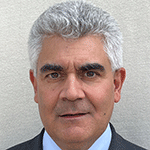 Professor Jonathan Valabhji is National Specialty Advisor for Multiple Long-Term Conditions at NHS England. He is Clinical Chair in Medicine at Imperial College London and Honorary Consultant Diabetologist at Chelsea and Westminster Hospital NHS Foundation Trust.
Professor Jonathan Valabhji is National Specialty Advisor for Multiple Long-Term Conditions at NHS England. He is Clinical Chair in Medicine at Imperial College London and Honorary Consultant Diabetologist at Chelsea and Westminster Hospital NHS Foundation Trust.
From April 2013 until September 2023 he was National Clinical Director for Diabetes and Obesity at NHS England. He established the NHS England Diabetes Programme in 2015, the NHS England Obesity Programmes in 2019, and more recently, the NHS England Multiple Long-Term Conditions Programme. These Programmes have involved a broad portfolio of national work streams including lifestyle interventions, clinical care, and technological support for self-management.
He has led rapid translation of high-quality research into national policy and practice and has established models for evaluation to assess translational impact. He successfully made the case for, and led implementation of, the NHS Diabetes Prevention Programme, including digital modes of delivery, with over 1.8 million people with pre-diabetes now referred in, and published evidence demonstrating reduced Type 2 diabetes incidence in programme participants and at English population level associated with programme implementation. He is now focussing on the impact of the Programme, a 9-month intensive lifestyle intervention, on incidence of other and multiple long-term conditions.
He qualified in 1990 from St Bartholomew’s Hospital Medical College, London. In 2019 he was awarded OBE in the Queen’s New Year Honours List for services to diabetes and obesity care.
National clinical director for learning disabilities and autism
 Dr Ken Courtenay is a Consultant Psychiatrist in Learning Disability. He has supported people with learning disabilities and autistic people in community services since 1998. Currently, he is employed by Barnet Enfield and Haringey Mental Health NHS Trust working in offender services for people with learning disabilities.
Dr Ken Courtenay is a Consultant Psychiatrist in Learning Disability. He has supported people with learning disabilities and autistic people in community services since 1998. Currently, he is employed by Barnet Enfield and Haringey Mental Health NHS Trust working in offender services for people with learning disabilities.
He has been the National Professional Adviser with the Care Quality Commission since 2020. Professional roles have included Chair of the Faculty of Psychiatry of Intellectual Disability with the Royal College of Psychiatrists (2018 – 2022) and President of the European Association for Mental Health and Intellectual Disabilities (2023 – 2025).
National clinical director for major trauma
 Robert Bentley is a fulltime Craniofacial and Oral and Maxillofacial Surgeon with a special interest in cranial reconstruction, and skull base surgery. Having completing his CCT in Oral and Maxillofacial Surgery (OMFS) in 1999 he went on to gain fellowships in paediatric and adult Craniofacial surgery at the University of Birmingham, Leipzig, Heidelberg and Basel.
Robert Bentley is a fulltime Craniofacial and Oral and Maxillofacial Surgeon with a special interest in cranial reconstruction, and skull base surgery. Having completing his CCT in Oral and Maxillofacial Surgery (OMFS) in 1999 he went on to gain fellowships in paediatric and adult Craniofacial surgery at the University of Birmingham, Leipzig, Heidelberg and Basel.
Robert has published widely and taught internationally on craniofacial trauma and was training programme director for OMFS for London from 2008-18, and was President of the British Association of Oral and Maxillofacial Surgeons in 2020.
National clinical director for maternity
 Donald Peebles has been a Professor of Maternal Fetal Medicine at University College London since 2008 and was Divisional Clinical Director for Women’s Health at UCLH from 2014 to 2020. He is subspecialty accredited in Maternal- Fetal Medicine and works mainly in the area of Fetal medicine with special interests in fetal therapy and neurodevelopment.. In 2019 he was part of a team that won a BMJ Clinical Leadership award for setting up a service to treat fetal spina bifida in utero. In 2013 he was appointed as co clinical Director for the NHS England London Maternity Strategic Clinical Network and since 2020 has been a National Specialty Adviser in Obstetrics working with a multidisciplinary national team to improve Maternity Services in England. In particular he leads an initiative to implement maternal medicine networks across England, improve culture of maternity services and provides obstetric leadership to the Maternity Safety Support Programme.
Donald Peebles has been a Professor of Maternal Fetal Medicine at University College London since 2008 and was Divisional Clinical Director for Women’s Health at UCLH from 2014 to 2020. He is subspecialty accredited in Maternal- Fetal Medicine and works mainly in the area of Fetal medicine with special interests in fetal therapy and neurodevelopment.. In 2019 he was part of a team that won a BMJ Clinical Leadership award for setting up a service to treat fetal spina bifida in utero. In 2013 he was appointed as co clinical Director for the NHS England London Maternity Strategic Clinical Network and since 2020 has been a National Specialty Adviser in Obstetrics working with a multidisciplinary national team to improve Maternity Services in England. In particular he leads an initiative to implement maternal medicine networks across England, improve culture of maternity services and provides obstetric leadership to the Maternity Safety Support Programme.
National specialty adviser for maternity
 Jasmine Leonce has been a Consultant Obstetrician, with a special interest in Fetal Medicine, at East and North Hertfordshire NHS Trust since 2011, and was the Clinical Director for Obstetrics from June 2015 to March 2022.
Jasmine Leonce has been a Consultant Obstetrician, with a special interest in Fetal Medicine, at East and North Hertfordshire NHS Trust since 2011, and was the Clinical Director for Obstetrics from June 2015 to March 2022.
She has contributed as a Specialist Obstetric Maternity Adviser to The Maternity and Newborn Safety Investigations programme (formerly Health Safety Investigation Branch) and is also a Specialist Obstetrics Adviser to the Care Quality Commission (CQC), a Maintaining High Professional Standards Investigator, and a Medicolegal expert.
In March 2022, she was appointed as a National Maternity Improvement Adviser to NHS England supporting Trusts that are on the Maternity Safety Support Programme (MSSP) on aspects of leadership, quality and safety, workforce and system-wide multidisciplinary team working. In February she was appointed as a National Specialty Adviser too, providing clinical leadership to the maternity and neonatal programme. Her remit is choice and personalised care, and she will be working closely with service user representatives and other stakeholders to address inequalities in access, experience, and improving outcomes for women and families.
Her other area of interest lies in promoting a positive workplace culture, ensuring inclusive spaces for staff. She co-chairs the East of England Maternity and Neonatal Ethnic Minority Workforce Group (MANEM) which was shortlisted for outstanding achievement at the National BAME Health and Care Awards in September 2023.
Throughout her career Jasmine has demonstrated strategic, compassionate and collaborative leadership, and has recently received the NHS Leadership Academy Award in Executive Healthcare Leadership. She performed research into placental physiology at Imperial College London and has presented her work at national and international forums.
National specialty adviser for maternity
 Susie Crowe is as a consultant obstetrician and gynaecologist at Barts Health NHS Trust, as well as holding multiple national roles including President of the British Intrapartum Care Society (BICS), and the National Workplace Behaviours Adviser for the Royal College of Obstetricians and Gynaecologists (RCOG). She also led the joint Royal College of Midwives (RCM)/RCOG safety programme, Each Baby Counts Learn and Support.
Susie Crowe is as a consultant obstetrician and gynaecologist at Barts Health NHS Trust, as well as holding multiple national roles including President of the British Intrapartum Care Society (BICS), and the National Workplace Behaviours Adviser for the Royal College of Obstetricians and Gynaecologists (RCOG). She also led the joint Royal College of Midwives (RCM)/RCOG safety programme, Each Baby Counts Learn and Support.
She has a passion for improving maternity care at local, regional, and national levels and believes that in order to deliver high quality care for women, babies families, nurturing environments need to be created through compassionate leadership. Central to her practice is establishing the right culture to ensure the workforce can feel psychologically safe and thrive.
With a wealth of experience in leadership, including as intrapartum lead, obstetric lead, clinical director, regional lead obstetrician for London, and maternity improvement advisor for NHS England, Susie supports departments to strive for excellence and safe, quality care by creating systems based on kindness and compassion.
National specialty adviser for maternity
 Tony Kelly has been a Consultant Obstetrician and Gynaecologist at University Hospitals Sussex in Brighton since 2003 and is one of several obstetricians providing high risk intrapartum care. More widely, he has been working in the field of clinical effectiveness and quality improvement for over 20 years, and specifically within safety and quality for the last 15 years. His main areas of work nationally are supporting the national perinatal culture and leadership programme, leading on the development of the new national maternity early warning score tool, and the preterm optimisation pathway.
Tony Kelly has been a Consultant Obstetrician and Gynaecologist at University Hospitals Sussex in Brighton since 2003 and is one of several obstetricians providing high risk intrapartum care. More widely, he has been working in the field of clinical effectiveness and quality improvement for over 20 years, and specifically within safety and quality for the last 15 years. His main areas of work nationally are supporting the national perinatal culture and leadership programme, leading on the development of the new national maternity early warning score tool, and the preterm optimisation pathway.
Tony also worked in a regional capacity on quality improvement for several years, and from 2010 to 2014 was the Associate Medical Director for Quality and Innovation at University Hospitals Sussex NHS Foundation Trust. He was also the Director of the Patient Safety Collaborative in the KSS Academic Health Science Network for two years.
He has been working at a national level since 2016 collaborating with a range of professions and stakeholders across the perinatal system.
National medical director for mental health and neurodiversity
 Dr Adrian James is the new Medical Director for Mental Health and Neurodiversity at NHS England, taking up the role on 3 June 2024.
Dr Adrian James is the new Medical Director for Mental Health and Neurodiversity at NHS England, taking up the role on 3 June 2024.
Adrian was President of the Royal College of Psychiatrists from 2020 – 2023 and is currently a board member of the NHS Race and Health Observatory and a member of the NHS Assembly. He is also an adviser to the Secure Directorate at Devon Partnership NHS Trust, where he was formerly a Consultant Forensic Psychiatrist from 1994 – 2024 and Medical Director from 2006 – 2008.
During his time as President of the Royal College of Psychiatrists, Adrian led the college through the Covid-19 pandemic and oversaw quality improvement initiatives for workforce wellbeing and Equality, Diversity, and Inclusion. During the pandemic, Adrian led the collation of evidence regarding the risks of Covid-19 for those with serious mental illness or a learning disability, leading to these groups being prioritised for a Covid-19 vaccine. One of Adrian’s main priorities at the college was to forward the ambition of achieving parity of esteem, to have mental health on an equal footing to psychical health.
National specialty adviser for mental health pharmacy
 Peter Pratt has worked as a Specialist Pharmacist in Psychiatry for the past 40 years. Prior to his appointment as National Clinical Director for Mental Health Pharmacy, he has held a number of appointments with NHS England as the Head of Medicines Strategy in Mental Health in 2016 and as a National Specialist Mental Health Pharmacist Adviser for Medicines in Mental Health. Prior to joining NHS England, Peter was the Chief Pharmacist at Sheffield Health and Social Care NHS Foundation Trust. He has extensive experience of psychopharmacology and pharmacy practice in mental health throughout the UK. He is a former chairperson and a fellow of the College of Mental Health Pharmacists and a fellow of the Royal Pharmaceutical Society. Peter is committed to supporting patients and prescribers achieve individualised and ‘best use’ of medicines in mental health. He has helped shape the national guidance for medicines use in mental health through his membership of several National Institute for Health and Care Excellence clinical guideline development groups including schizophrenia, the management of violence and psychosis with substance misuse.
Peter Pratt has worked as a Specialist Pharmacist in Psychiatry for the past 40 years. Prior to his appointment as National Clinical Director for Mental Health Pharmacy, he has held a number of appointments with NHS England as the Head of Medicines Strategy in Mental Health in 2016 and as a National Specialist Mental Health Pharmacist Adviser for Medicines in Mental Health. Prior to joining NHS England, Peter was the Chief Pharmacist at Sheffield Health and Social Care NHS Foundation Trust. He has extensive experience of psychopharmacology and pharmacy practice in mental health throughout the UK. He is a former chairperson and a fellow of the College of Mental Health Pharmacists and a fellow of the Royal Pharmaceutical Society. Peter is committed to supporting patients and prescribers achieve individualised and ‘best use’ of medicines in mental health. He has helped shape the national guidance for medicines use in mental health through his membership of several National Institute for Health and Care Excellence clinical guideline development groups including schizophrenia, the management of violence and psychosis with substance misuse.
National clinical director for musculoskeletal
 Dr Lesley Kay is a Consultant Rheumatologist in Newcastle upon Tyne, the joint National Clinical Lead for Rheumatology in the Getting It Right First Time Programme, Vice Chair of the Northern Clinical Senate Council and a trustee of the National Axial Spondyloarthritis Society. She was previously acting Medical Director and deputy Medical Director at the Healthcare Safety Investigation Branch, Clinical Director for Musculoskeletal Services and for Patient Safety and Quality in her trust, and Chair of the British Society for Rheumatology’s Clinical Affairs committee. She has master’s degrees in public health and in Leadership and Quality Improvement.
Dr Lesley Kay is a Consultant Rheumatologist in Newcastle upon Tyne, the joint National Clinical Lead for Rheumatology in the Getting It Right First Time Programme, Vice Chair of the Northern Clinical Senate Council and a trustee of the National Axial Spondyloarthritis Society. She was previously acting Medical Director and deputy Medical Director at the Healthcare Safety Investigation Branch, Clinical Director for Musculoskeletal Services and for Patient Safety and Quality in her trust, and Chair of the British Society for Rheumatology’s Clinical Affairs committee. She has master’s degrees in public health and in Leadership and Quality Improvement.
National clinical director for neonatology
 Ngozi Edi-Osagie has been a consultant neonatologist at Manchester Foundation Trust since 2002. She is one of the Group Associate Medical Directors at Manchester foundation trust.
Ngozi Edi-Osagie has been a consultant neonatologist at Manchester Foundation Trust since 2002. She is one of the Group Associate Medical Directors at Manchester foundation trust.
She has broad clinical and leadership experience, having been a clinical lead, a clinical director, and a Clinical head of division of clinical services.
She was clinical lead for the development of a single hospital service across the city of Manchester overseeing the merge of 10 hospitals and community services into a single trust. She is involved in external investigations and peer review of neonatal services. She is the neonatal representative on the NHS Race and Health Observatory.
She chairs the Neonatal Critical care CRG and co-chairs NHS England Neonatal Implementation Board.
She is officer for Genomics at Royal College of Paediatrics and Child Health.
She is President Elect of the Manchester Medical Society (Paediatrics).
Her research interests are focused on health inequalities.
National specialty advisor for obstetrics and prevention
 Kate Duhig has taken on the role of Clinical Senior Lecturer and Honorary Consultant Obstetrician at King’s College London/St Thomas’ Hospital. Kate’s specialist clinical and academic interest is in complex maternal medicine and pregnancy hypertension.
Kate Duhig has taken on the role of Clinical Senior Lecturer and Honorary Consultant Obstetrician at King’s College London/St Thomas’ Hospital. Kate’s specialist clinical and academic interest is in complex maternal medicine and pregnancy hypertension.
As part of her PhD in Women’s Health from Kings’ College London she undertook a clinical implementation trial of a placental growth factor testing for suspected pre-eclampsia across 11 NHS trusts in England. This led to a national roll out of this diagnostic test via the NHS England Accelerated Access Collaborative which is now a NICE recommended diagnosis for pre-eclampsia.
Kate Duhig also has an MSc in Epidemiology from the London School of Hygiene and Tropical Medicine and was a national NICE Scholar in 2022.
For the last few years Kate has worked as a Clinical Lecturer and Consultant Obstetrician at the University of Manchester.
Kate is a keen advocate of incorporating exercise into your life and enjoys running and cycling, fitting it in around her various roles, husband and three children.
National clinical director for older people and integrated personalised care
Tom Downes is Consultant Geriatrician and Clinical Lead for Improvement at Sheffield Teaching Hospitals. Until starting as National Clinical Director he was Vice President for Clinical Quality at the British Geriatrics Society.
His main interest is system thinking and the translation of improvement science to achieve redesign of healthcare.
In 2009, Tom undertook a Health Foundation Quality Improvement Fellowship at Harvard and the Institute for Healthcare Improvement in Boston, USA. On his return to Sheffield, he developed the role of clinical lead for improvement.
Tom has facilitated the redesign of acute geriatric care in Sheffield. The geriatric medicine team have designed and launched a seven-day multidisciplinary Frailty Assessment Unit achieving significant reductions in length of stay and mortality. Subsequently, Tom coached the redesign of discharge of frail older patients introducing the concept of ‘discharge to assess’ which delivers an improved patient experience while reducing hospitalisation by thousands of bed days.
Clinical directors for outpatient recovery and transformation
 Dr Tanya Bleiker has been a Consultant Dermatologist at the University Hospitals of Derby and Burton since 2001. She is immediate past President of the British Association of Dermatologists (BAD), former Editor-in-Chief of the British Journal of Dermatology (BJD) and is one of five editors of the internationally renowned Rook’s Textbook of Dermatology. Since 2022 she has been the joint Clinical Director for the Outpatient Recovery and Transformation (OPRT) programme within NHS England.
Dr Tanya Bleiker has been a Consultant Dermatologist at the University Hospitals of Derby and Burton since 2001. She is immediate past President of the British Association of Dermatologists (BAD), former Editor-in-Chief of the British Journal of Dermatology (BJD) and is one of five editors of the internationally renowned Rook’s Textbook of Dermatology. Since 2022 she has been the joint Clinical Director for the Outpatient Recovery and Transformation (OPRT) programme within NHS England.
Over the last two years she has worked closely with the OPRT dermatology team to develop guidance and to promote transformation in dermatology services. Dermatology has seen the biggest uptake in advice and guidance of all specialties and was also one of the earlier adopters of Patient Initiated Follow Up (PIFU).
 Dr Fiona McKevitt is a Consultant Neurologist specialising in Neuro-Oncology. She is the erstwhile Chair of the Association of British Neurologists Neuro-Oncology Advisory Group and former Clinical Lead for Outpatient Transformation at Sheffield Teaching Hospitals NHS Foundation Trust. She is co-author of Modern Outpatient Care published by the Royal College of Physicians.
Dr Fiona McKevitt is a Consultant Neurologist specialising in Neuro-Oncology. She is the erstwhile Chair of the Association of British Neurologists Neuro-Oncology Advisory Group and former Clinical Lead for Outpatient Transformation at Sheffield Teaching Hospitals NHS Foundation Trust. She is co-author of Modern Outpatient Care published by the Royal College of Physicians.
In Sheffield Fiona led on key initiatives for outpatient recovery notably, the delivery of virtual appointments, the implementation of Patient Initiated Follow Up, and the introduction of Specialist Advice Services. She has experience of working closely with both primary and secondary care as a member of the Sheffield Health and Care Partnership.
Since 2022 she has been the joint Clinical Director for the Outpatient Recovery and Transformation programme at NHS England. She is a member of the Future of Outpatients Strategy steering group and is co-chair of the national Reducing Missed Appointments steering group.
National clinical director for palliative and end-of-life care
Dr Sarah Mitchell is National Clinical Director for Palliative and End-of-Life Care for NHS England. She works as a General Practitioner at a “DeepEnd” practice and care home in Sheffield and is an Associate Clinical Professor of Palliative Care at the University of Leeds. She is committed to improving palliative and end-of-life care for people of all ages, with all conditions, through effective integration and learning from patient experiences. Her clinical and academic interests are in improving health inequalities in palliative and end of life care for people from all communities, both adults and children. Sarah studied health service design for children and young people with palliative care needs for her PhD.
Sarah has held leadership roles in Palliative and End-of-Life Care with NHS commissioning and policy organisations, locally, regionally, and nationally for over ten years. She has previously been a member of the editorial board for the Cochrane Pain, Palliative and Supportive Care Editorial Board and the Expert Advisory Committee for the NICE Quality Standard Update Panel member: End of Life Care for Adults [QS13], and an Executive Committee member of the Association for Paediatric Palliative Medicine. She now Co-Chairs the National Ambitions Partnership for Palliative and End-of-Life Care.
National specialty adviser for pathology
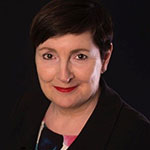 Professor Joanne Martin is a practising histopathologist at the Royal London Hospital. Her clinical specialist expertise is in the pathology of gastrointestinal motility disorders and in renal pathology. She is Professor of Pathology at Queen Mary University London, with research interests in new diagnostics and drug delivery. She chairs the Research Advisory Board of the Motor Neuron Disease Association. She led education and research across Barts Health NHS Trust, and has created app based training tools for staff, students, patients and carers.
Professor Joanne Martin is a practising histopathologist at the Royal London Hospital. Her clinical specialist expertise is in the pathology of gastrointestinal motility disorders and in renal pathology. She is Professor of Pathology at Queen Mary University London, with research interests in new diagnostics and drug delivery. She chairs the Research Advisory Board of the Motor Neuron Disease Association. She led education and research across Barts Health NHS Trust, and has created app based training tools for staff, students, patients and carers.
Jo has wide experience of healthcare management and leadership in a range of positions, including the Board of Barts Health NHS Trust. She has worked across programmes and projects in all the pathology disciplines including genetics, transfusion, digital pathology, data, networks and with many professional bodies and patient groups. National Clinical Director of Pathology for NHS England April 2013-16, Jo became President of the
National specialty adviser for physiological measurements
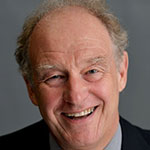 Martin Allen is a Respiratory Physician at University Hospital of North Staffordshire. He has interests in a variety of respiratory diseases including COPD, ventilatory support/weaning and sleep medicine originating from my research into sleep and physiological changes. He has fulfilled a variety of management and transformational roles within the hospital, including CD and Medicine Divisional Head. Holding a variety of national roles he sits on the British Thoracic Society Board, Chairs the respiratory EWG on coding, sits on the Respiratory CRG, contributes to the Respiratory Long Term Plan and is the GIRFT National Clinical Lead for Respiratory Medicine.
Martin Allen is a Respiratory Physician at University Hospital of North Staffordshire. He has interests in a variety of respiratory diseases including COPD, ventilatory support/weaning and sleep medicine originating from my research into sleep and physiological changes. He has fulfilled a variety of management and transformational roles within the hospital, including CD and Medicine Divisional Head. Holding a variety of national roles he sits on the British Thoracic Society Board, Chairs the respiratory EWG on coding, sits on the Respiratory CRG, contributes to the Respiratory Long Term Plan and is the GIRFT National Clinical Lead for Respiratory Medicine.
National clinical director for prescribing
 Professor Avery OBE is a GP in Nottingham and Professor of Primary Health Care at the University of Nottingham. He is also a National Institute for Health Research (NIHR) Senior Investigator and member of the NIHR Greater Manchester Patient Safety Translational Research Centre. He was awarded an OBE in the 2022 New Year’s Honours list.
Professor Avery OBE is a GP in Nottingham and Professor of Primary Health Care at the University of Nottingham. He is also a National Institute for Health Research (NIHR) Senior Investigator and member of the NIHR Greater Manchester Patient Safety Translational Research Centre. He was awarded an OBE in the 2022 New Year’s Honours list.
He is passionate about ensuring the safe, effective and appropriate use of medicines and has worked in partnership with the pharmacy professions, other healthcare professionals and patients over 30 years to drive forward research and policy development in prescribing and patient safety.
He has led a number of major studies investigating the frequency, nature and causes of prescribing safety problems in the NHS. He has also developed effective methods for tackling hazardous prescribing, most notably the pharmacist-led, IT-based intervention called PINCER, which has now been rolled out nationally to general practices in England.
Tony’s work recognises the vital role that medicines have in treating illness and helping people live with long-term conditions, while acknowledging that prescribing of a medicine is not always the best solution. He is committed to ensuring health care professionals and patients have the information and support they need for shared decision making about whether a prescription is needed and, if so, how to balance the effectiveness and safety of medicines alongside the costs to the patient, the NHS and the environment.
National specialty adviser for public health screening
To be confirmed.
National clinical director for respiratory disease
Jonathan Fuld is a Consultant Respiratory Physician based at Cambridge University Hospitals NHS Foundation Trust and researcher at the Victor Phillip Dahdaleh Heart and Lung Research Institute, University of Cambridge. His clinical practice centres around acute respiratory medicine, care for people with advanced COPD and cardiopulmonary exercise testing.
He has a clinical and research interest in exercise physiology, particularly in breathing pattern disorder as a cause of breathlessness. He has a research programme aligned to chronic obstructive pulmonary disease and lived experience as well as access to services for those with chronic lung disease.
The UPTURN programme grant seeks to increase the uptake of pulmonary rehabilitation while lessening known health inequalities.
Prior to taking up this appointment Jonathan was Clinical Director for Infection and Inflammation at Cambridge University Hospitals and East of England lead for the Respiratory Clinical Network.
National specialty adviser for secure mental health
 Dr Mayura Deshpande is a consultant forensic psychiatrist and associate Medical Director at Southern Health Foundation Trust. She has also been clinical lead of the national network of adolescent medium secure units on behalf of NHS England for the past four years.
Dr Mayura Deshpande is a consultant forensic psychiatrist and associate Medical Director at Southern Health Foundation Trust. She has also been clinical lead of the national network of adolescent medium secure units on behalf of NHS England for the past four years.

David Hargroves is a consultant stroke physician in East Kent, graduating from University College London, with a Masters from Kings following a stroke research thesis during his general medicine, geriatric and stroke fellowship training.
He was elected to the British Association of Stroke Physicians (BASP) Education & Training Board in October 2011 and Chaired this group until recently.
David has been the clinical lead for the Getting it Right First Time (GIRFT) stroke programme for NHS England and has met over 200 acute and rehabilitation stroke teams, co-wrote the GIRFT national stroke report, published in 2022, and the National Mechanical Thrombectomy report, published in 2023.
He co-founded a multidisciplinary disease specific leadership academy in partnership with the Kings Fund and Royal College of Physicians: GIRFT Leadership Academy – Stroke Specific (GLASS) in 2023.
David co-produced the National Stroke Service Model (NSSM), the Integrated Stroke Service Model (ICSSM) and the National Optimal Stroke Imaging Pathway (NOSIP), all published in 2021.
He is an active researcher and has published widely, including pragmatic guidance on the adaption of services during and post the COVID 19 pandemic, including resources to assist systems to improve the detection and treatment of modifiable vascular risk factors.
David is a holder of the Life after Stroke Award for Professional Excellence from the Stroke Association.
National speciality advisor for stroke
 Michelle Long is a neurological rehabilitation specialist Physiotherapist. She qualified as a physiotherapist in 1991 from the Queen Elizabeth School of Physiotherapy in Birmingham. Michelle has always been passionate about neurological rehabilitation, having specialized in the field for 30 years. She has been a multi-professions therapy lead in Sussex for over 20 years and currently works as a therapy lead in the pan-Sussex, level 2a, post-acute neuro-rehab unit, and as the National Speciality Advisor (NSA) in the national stroke programme team.
Michelle Long is a neurological rehabilitation specialist Physiotherapist. She qualified as a physiotherapist in 1991 from the Queen Elizabeth School of Physiotherapy in Birmingham. Michelle has always been passionate about neurological rehabilitation, having specialized in the field for 30 years. She has been a multi-professions therapy lead in Sussex for over 20 years and currently works as a therapy lead in the pan-Sussex, level 2a, post-acute neuro-rehab unit, and as the National Speciality Advisor (NSA) in the national stroke programme team.
Michelle completed a neurological rehabilitation MSc in 2002 at Brunel University, with her dissertation focusing on the development of an objective measure for early stance in patients with hemiplegia. She has contributed to a chapter on rehabilitation in an Oxford Desk Reference for elderly care and has reported on two projects to the BSPRM on goal setting and the FIM FAM. Michelle is passionate about rehabilitation and helping put quality back into life.
Prior to becoming the NSA, Michelle worked as the South East Stroke Quality Improvement for Rehabilitation Manager (SQuIRe). As the South East SQuIRe, she oversaw 16 SQuIRe projects in the South East, ranging from work to improve the intensity of therapy by testing novel workforce and service delivery models, to work to improve vocational rehab. Michelle chairs the South East SSNAP user group and is passionate about using data to improve service design and quality. She also chairs the national stroke vocational rehabilitation community of practice.
Both the SQuIRe and NSA roles put quality improvement at the heart of everything they do. Michelle feels privileged to be on this journey with the stroke and neuro rehabilitation community.
National specialty adviser for tobacco addiction
 Professor Sanjay Agrawal has been a Consultant in Respiratory and Intensive Care Medicine for over 20 years. He has Chaired the British Thoracic Society (BTS) tobacco specialist advisory group and co- led the 2016 BTS national hospital tobacco audit. In 2018 he co-edited the Royal College of Physicians (RCP) report ‘Hiding in plain sight: treating tobacco dependency in the NHS and Chairs the RCP Tobacco advisory group. Dr Agrawal is a member of the Public Health England Implementation Board for The Tobacco Control Plan for England and has served on the NICE Public Health Advisory Committee producing recommendations for the prevention and treatment of tobacco dependency.
Professor Sanjay Agrawal has been a Consultant in Respiratory and Intensive Care Medicine for over 20 years. He has Chaired the British Thoracic Society (BTS) tobacco specialist advisory group and co- led the 2016 BTS national hospital tobacco audit. In 2018 he co-edited the Royal College of Physicians (RCP) report ‘Hiding in plain sight: treating tobacco dependency in the NHS and Chairs the RCP Tobacco advisory group. Dr Agrawal is a member of the Public Health England Implementation Board for The Tobacco Control Plan for England and has served on the NICE Public Health Advisory Committee producing recommendations for the prevention and treatment of tobacco dependency.
National clinical director for urgent and emergency care
Professor Julian Redhead is National Clinical Director for Integrated Urgent and Emergency Care, and responsible for helping the NHS to continue to improve 999, 111, A&E and other urgent care services, at the same time as the service faces record levels of pressure following the pandemic.
Professor Redhead was previously Medical Director and Consultant for Emergency Medicine at Imperial College Healthcare, and Medical Director for the North West London Integrated Care Partnership.
Specialising in emergency medicine, Dr Redhead was first appointed as a consultant at Ealing hospital in 2000. He joined Imperial College Healthcare NHS Trust full time in 2004 and became chief of service for emergency medicine in 2008. Since then, he has held various roles including Clinical Programme Group Director for Medicine, Divisional Director for Investigative and Supporting Sciences and Associate Medical Director for Professional Development.
National clinical director for women’s health
 Sue Mann is Consultant in Women’s Health at Homerton University Hospital. Combining national and local roles has enabled system level understanding and a commitment to the integration of policy, population health and health system change for improvement. Her academic experience through a National Institute for Health and Care Research Fellowship in Knowledge Mobilisation has consolidated her focus on data-driven approaches and the implementation of evidence-based healthcare solutions to improving delivery and healthcare outcomes.
Sue Mann is Consultant in Women’s Health at Homerton University Hospital. Combining national and local roles has enabled system level understanding and a commitment to the integration of policy, population health and health system change for improvement. Her academic experience through a National Institute for Health and Care Research Fellowship in Knowledge Mobilisation has consolidated her focus on data-driven approaches and the implementation of evidence-based healthcare solutions to improving delivery and healthcare outcomes.
Locally she has spearheaded the development of women’s health hubs in City and Hackney and the implementation of virtual group consultations for common women’s health problems – both interventions that have contributed to national strategy.


